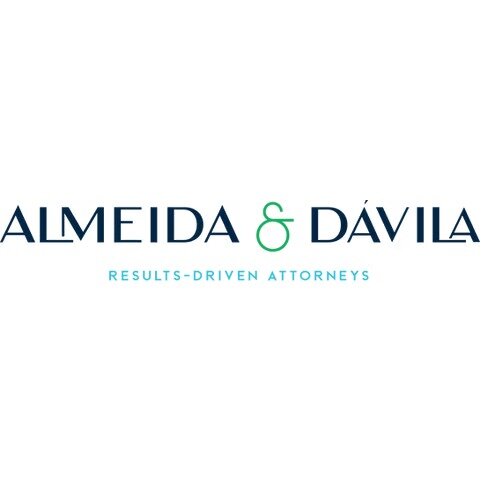Best ADR Mediation & Arbitration Lawyers in San Juan
Share your needs with us, get contacted by law firms.
Free. Takes 2 min.
List of the best lawyers in San Juan, Puerto Rico
About ADR Mediation & Arbitration Law in San Juan, Puerto Rico
Alternative Dispute Resolution (ADR) encompasses a variety of methods used to resolve disputes outside of the courtroom, primarily through mediation and arbitration. In San Juan, Puerto Rico, ADR serves as an efficient and less adversarial approach to conflict resolution. The focus on ADR arises due to the desire to alleviate the overloaded judicial system and provide a cost-effective method for settling disputes. Mediation involves a neutral third-party mediator who facilitates discussions between disputing parties to reach a mutually agreeable resolution. Arbitration, on the other hand, involves an arbitrator who renders a decision after hearing arguments and evidence from each side. Both methods offer privacy, flexibility, and can significantly shorten dispute resolution time.
Why You May Need a Lawyer
Individuals may require legal assistance in ADR for various reasons. For instance, if you are entering into a contract that includes a mediation or arbitration clause, a lawyer can help clarify the implications and ensure your rights are adequately protected. In cases where a dispute has already arisen, legal counsel can guide you on the most suitable form of ADR, prepare necessary documentation, and help present your case during mediation or arbitration sessions. Additionally, if you are an organization looking to establish or review your ADR policies or clauses, experienced attorneys can offer invaluable advice to ensure compliance with local laws and regulations.
Local Laws Overview
The legal framework governing ADR in San Juan, Puerto Rico, aligns with both federal statutes and local norms which emphasize the respect and enforcement of arbitration awards and mediation agreements. Puerto Rico’s Civil Code permits and regulates ADR practices, incorporating principles from both civil law traditions and the Uniform Arbitration Act. Key aspects include the voluntary nature of ADR, the enforceability of arbitration agreements, confidentiality stipulations, and the grounds upon which arbitration awards can be appealed. Understanding these local laws is crucial for effective engagement in ADR processes.
Frequently Asked Questions
What is the difference between mediation and arbitration?
Mediation is a collaborative process where a mediator facilitates dialogue between parties to help them reach a consensus, while arbitration involves a more formal procedure where an arbitrator listens to both sides and issues a binding decision.
Is ADR mandatory for all disputes in San Juan, Puerto Rico?
ADR is not mandatory for all disputes, but it is often stipulated in contracts as a preferred method of resolution before resorting to litigation.
Can I represent myself in mediation or arbitration?
Yes, you can represent yourself; however, having legal representation can be beneficial, especially in complex disputes where the stakes are high.
How is an arbitrator chosen?
The method for selecting an arbitrator is usually outlined in the arbitration clause of a contract. If not specified, both parties may agree on an arbitrator, or a third-party organization may appoint one.
Are ADR outcomes enforceable by law?
Yes, agreements reached through mediation can be made legally binding, and arbitration awards are generally enforceable in the same manner as court judgments.
What types of disputes are suitable for ADR?
ADR is suitable for a wide range of disputes, including commercial, employment, family, and consumer conflicts, among others.
How long does the ADR process take?
The duration of ADR varies depending on the complexity of the case and the willingness of parties to cooperate, but it is generally faster than traditional litigation.
Is confidentiality maintained in ADR proceedings?
Yes, confidentiality is a fundamental feature of both mediation and arbitration, ensuring that discussions and agreements remain private.
What happens if mediation does not result in an agreement?
If mediation fails, parties may proceed to arbitration or litigation, depending on their prior agreement or legal advice received.
Can ADR be used in family disputes?
Yes, ADR is commonly used to resolve family disputes, including divorce, custody, and property division, through a less contentious process.
Additional Resources
Consider reaching out to the Puerto Rico Bar Association for guidance and resources on ADR practices. The American Arbitration Association and local chambers of commerce in San Juan may also provide support and information regarding mediation and arbitration services. Additionally, Puerto Rico's Judicial Branch offers resources and documentation to assist individuals in understanding and participating in ADR.
Next Steps
If you believe ADR is the right path for your dispute, your first step should be to contact a lawyer specializing in ADR to discuss your case and explore your options. Prepare all relevant documents and information about your dispute to facilitate a thorough consultation. Be proactive in understanding your rights and the specific ADR processes available. With the guidance of legal counsel, you can navigate the ADR landscape in San Juan, Puerto Rico, more effectively. Engage with local ADR services early to set the stage for potential resolutions.
Lawzana helps you find the best lawyers and law firms in San Juan through a curated and pre-screened list of qualified legal professionals. Our platform offers rankings and detailed profiles of attorneys and law firms, allowing you to compare based on practice areas, including ADR Mediation & Arbitration , experience, and client feedback.
Each profile includes a description of the firm's areas of practice, client reviews, team members and partners, year of establishment, spoken languages, office locations, contact information, social media presence, and any published articles or resources. Most firms on our platform speak English and are experienced in both local and international legal matters.
Get a quote from top-rated law firms in San Juan, Puerto Rico — quickly, securely, and without unnecessary hassle.
Disclaimer:
The information provided on this page is for general informational purposes only and does not constitute legal advice. While we strive to ensure the accuracy and relevance of the content, legal information may change over time, and interpretations of the law can vary. You should always consult with a qualified legal professional for advice specific to your situation.
We disclaim all liability for actions taken or not taken based on the content of this page. If you believe any information is incorrect or outdated, please contact us, and we will review and update it where appropriate.










